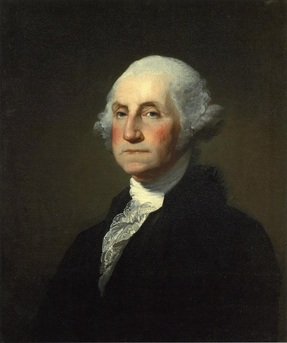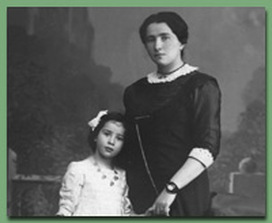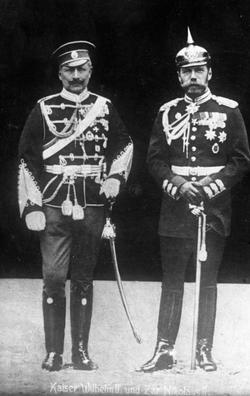 First US President George Washington ~ by Gilbert Stuart
First US President George Washington ~ by Gilbert Stuart (Bonus) War Cry Heal Union: The series (7.5 of 10)
George shows some (representation) cleavage.
Constitutional representation is our theme today with George Washington’s political cleavage our focus.
George wrote a Letter to the Hebrew Congregation of Newport (Rhode Island) 224 years ago, 18 August 1790; his words are in response to a kind letter from the congregation. The year of the letter provides a frame for us; 1790 is the first constitutional Enumeration for the former subjects of the Colony of Rhode Island and Providence Plantations ~ they are now citizens of the United States.
George’s letter has bad and good in it – though that’s not the cleavage. The cleavage is in Washington’s mind; we can sense his humanness and all that goes with it.
The Letter is brief (300 words in 8 paragraphs) and warm; Washington reflects on his visit to Newport and the Revolution; he also applauds the new Republic and its citizens:
“The citizens of the United States of America have a right to applaud themselves for having given to mankind examples of an enlarged and liberal policy – a policy worthy of imitation. All possess alike liberty of conscience and immunities of citizenship.”
Those are fine words there George ~ the promises of “liberty of conscience and immunities of citizenship” deserve much reflection, particularly given the state of national and world affairs. Yet it is the applause Washington recommends that is the first cleavage: the United States Republic.
The “enlarged and liberal policy” Washington is noting is part of America’s Exceptionalism: constitutional representation of We the People according to numbers (Article I, Section 2, Clause 3). The Hebrew Congregation of Newport, meaning Jews, were protected and counted as US citizens; that was new and it’s American. We highlighted the anti-Semitism of Europe in the Willy-Nicky Were Willy-Nilly Emperors posting; the tribe of Judah, as Emperor Wilhelm eerily noted, were not welcome in Europe; America said it was okay … which was new … in 1790.
There’s more to this letter and George’s words; he goes on to make comments that are perspectival: things about no toleration of bigotry or persecution in the US. Washington doesn’t write like he’s aware of the aborigine, the enslaved or women absented. We won’t cover them today; they show a second political cleavage though, that, like slavery, needs discussion and light.
Glean from George and take what’s best (and then make it better); his high words regarding citizenship are an example of potential gleanings ~ just like America’s (constitutional) Republic.
~
Next on Ew Publishing's WCHU: Emperor Napoleon, Palm and Hitler’s White Rose, posting on Tuesday, 26 August.
~ Posted by Bryan W. Brickner


 RSS Feed
RSS Feed
